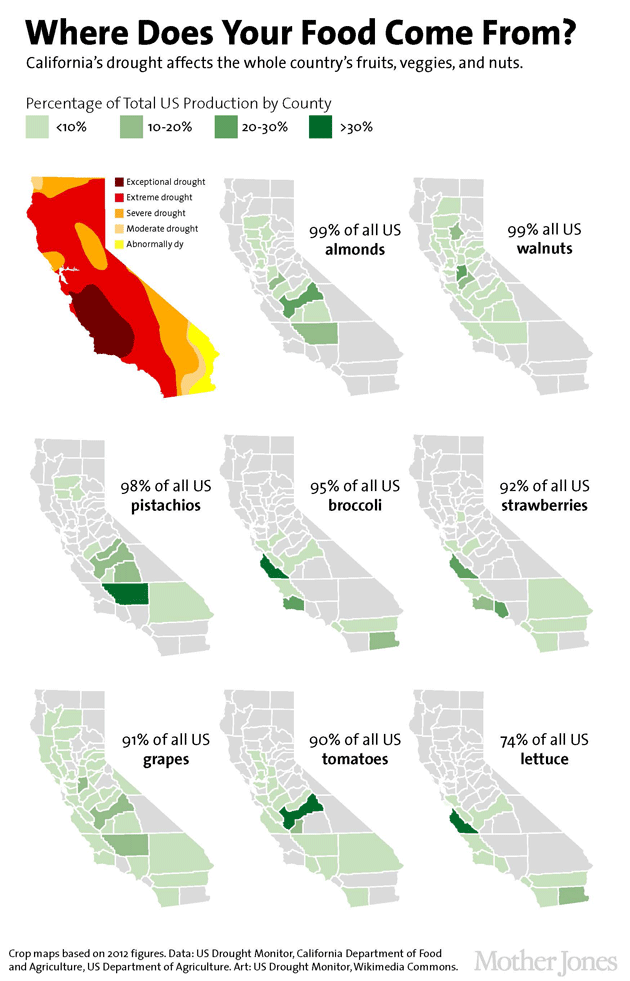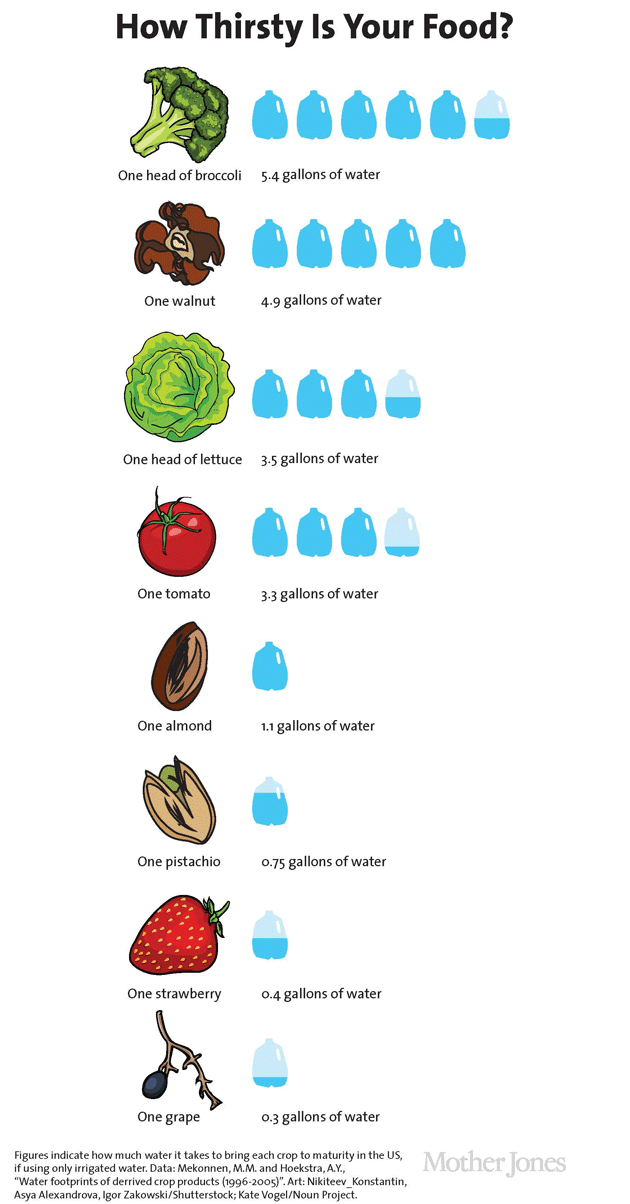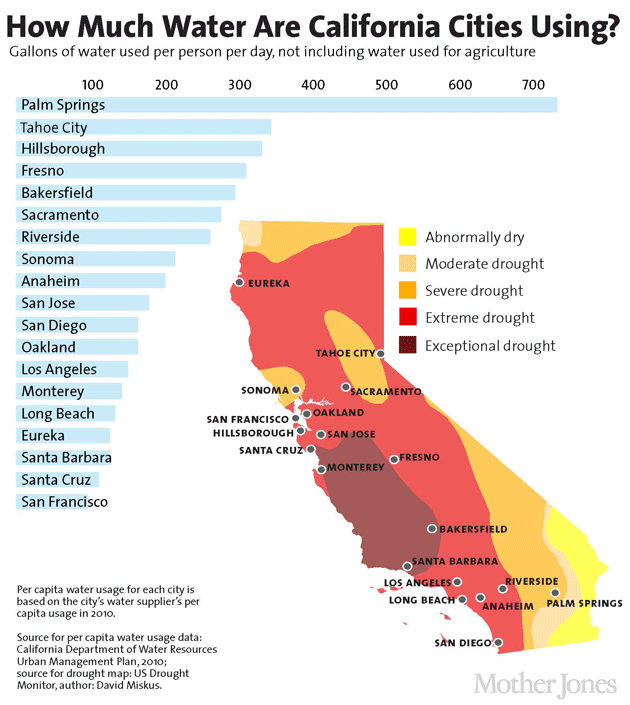
Date: 2025-11-19 Page is: DBtxt003.php txt00009669
Issue ... Water
Climate change, California and Foods
It Takes How Much Water to Grow an Almond?! Why California's drought is a disaster for your favorite fruits, vegetables, and nuts.
Burgess COMMENTARY
Peter Burgess
ENVIRONMENT → Climate Change, Econundrums, Food and Ag, Science, Top Stories It Takes How Much Water to Grow an Almond?! Why California's drought is a disaster for your favorite fruits, vegetables, and nuts.

California, supplier of nearly half of all US fruits, veggies, and nuts, is on track to experience the driest year in the past half millennium. Farms use about 80 percent of the state's 'developed water,' or water that's moved from its natural source to other areas via pipes and aqueducts.
As the maps above show, much of California's agriculture is concentrated in the parts of the state that the drought has hit the hardest. For example: Monterey County, which is currently enduring an 'exceptional drought,' according to the US Drought Monitor, grew nearly half of America's lettuce and broccoli in 2012.
When it comes to water use, not all plants are created equal. Here's how much water some of California's major crops require:

Jay Lund, a water expert at the University of California-Davis, says that water problems mean that agriculture may soon play a less important role in California's economy, as the business of growing food moves to the South and the Midwest, where water is less expensive. Production rates for thirsty crops like alfalfa and cotton have already diminished significantly in the last few years. Between 2006 and 2010 alone, the amount of land irrigated for cotton fell by 46 percent.
In addition to farms, the drought affects municipal water supplies. There is so little water this year that some places are in danger of running out—and the little that is left could soon become undrinkable because of the high concentration of pollutants.
So how are Californians doing on water conservation? Here's how some cities stack up:

ALEX PARK Alex Park is a former writing fellow at Mother Jones. For more of his stories, click here. RSS | TWITTER JULIA LURIEReporter Julia Lurie is a reporter at Mother Jones. You can reach her at jlurie@motherjones.com. RSS | TWITTER